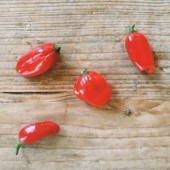A neighbor was recently diagnosed with breast cancer.
This kind of news always comes as a shock. Certainly for me, but more for her; there are so many changes ahead. Whether she likes it or not, she’ll be thrust into a world where the landscape stays the same but everything looks, feels, and even tastes different. She’ll visit waiting rooms painted every shade of tan; flip through the office copy of “Prevention” magazine. Mostly, she’ll find it hard to focus so she’ll revert to her strange new habit of staring at the wall, emotionless, wondering what will become of her life.
There are many lessons that I’d like to share but don’t. She’ll learn these things as she goes, I suppose. She’ll question every one of her past behaviors, wondering if she’s somehow at fault. She’ll ask “why me?” and then move on, self-pity isn’t good for the soul.
And she will move forward, that I know. One baby step at a time.
But often for every step forward there are two steps back. Cancer is thorny like that. It can morph and change, give you false hope, slip through the safety nets that you’ve so doggedly put in place.
It’s like fighting an army where every soldier is armed with a different weapon. You fight back with whatever tools are at your disposal, never knowing when the arsenal will run dry.
The age-old battle analogy…but, does it help or does it hinder? Catherine Poole, who runs the Melanoma International Foundation, talks about “fighting” words in a recent blog post. She refers to the unnecessary pressure that it puts on the patient. Do you lose the battle if you haven’t fought hard enough?
There is evidence that suggests that rather than adopting a “fighting spirit”, patients should cultivate a “will to live”. It keeps your body off the defensive and focuses your energy on the positive outcome – life itself – not the negative distractions: the enemies, mutations, and malignancies that are as much a part of your body as your own hands.
Reflecting on my own experience with cancer, it’s been deeply internal; more mental than physical. While you endure physical pain as part of the healing process, you’d be surprised by how comfortable you become with the endless battery of hospital gowns, IV drips, fevers and barium milkshakes.
But mentally – that’s where cancer really thrives. It stretches its legs and buries itself in the sanctuary of your pliable mind, teasing you with one new challenge after the next. It delights in your uncertainty and sits back to watch you squirm. Sometimes you’re tearful, morose even, but often you’re enthusiastic, filled with energy, pen and paper in hand.
You try to hold on to these good moments; in fact you feel guilty for thinking otherwise. The guilt is enhanced by the emails and texts that reassure that “you’ll be fine! I know it!”
Which should empower you further, but the truth is, these encouragements feel permeable, like the softest, most buoyant cloud which lets the sun shine through but doesn’t make each day, each baby step, any easier.
I’ve yet to meet anyone who can, with any accuracy, predict the future. So while it’s nice for friends and family to say that in their heart of hearts things will be fine, the comfort in that phrase is often more for their benefit than it is for mine.
As the patient, you know the statistics, you can recite them backwards with one eye closed. You’re both dreamer and realist; hopeful for long-term remission, but cognizant that your future is anything but certain.
This “will to live” though, is powerful. You can choose to fall prey to the numbers and live in fear. Or, you can choose to ignore them and live your life with hope, squeezing as many droplets of happiness as you can from each stone.
50 comments











